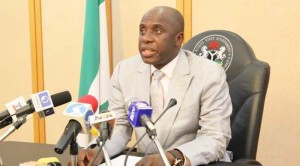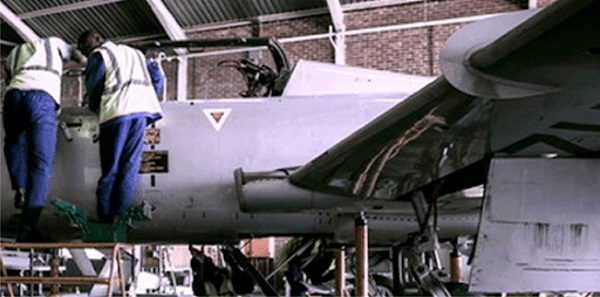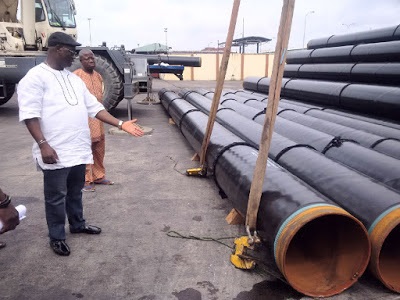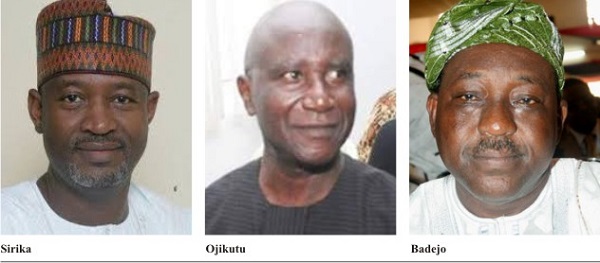Appraising Amaechi’s Maiden Year In Office

It’s over a year since Hon. Rotimi Amaechi was appointed as the Minister of Transportation. An appointment which was greeted with tension and anxiety among the industry stakeholders. Veterans in the maritime business had put forward several conflicting ideas on his role as the Transport Minister.
Nigeria’s transport sector had suffered poor policy implementation, inconsistent administrators, lack of skilled manpower, corruption, among other factors; these have resulted to failure in actualizing the enormous potentials available to create employment and revenue in the sub-sectors such as; maritime, aviation and railway.
Therefore, experts in various parts of the industry were keen to set an agenda for the Transport Minister while they also revealed their fears. How has Amaechi been able to allay these fears? How much of the expectations has he lived up to? Has his brashness and pragmatism made or marred the transport sector? What are his modest achievements in transport sector, if any?
Amaechi, during his maiden visit to the parastatals under his ministry in Lagos had said, “I am not a transport expert”. He said this in his usual loquacious innocence to later attract empathy, support and open-mindedness from the experts and stakeholders, and no Minister of Transportation in recent past had the level and number of engagements with stakeholders like Amaechi.
In his first year in office, he has attended several meetings and conferences, he asks questions and he is always quick to say, “I want to learn.”
MMS Plus met with several notable leaders in the industry to fetch an analysis/ appraisals of the Minister of Transport in a bid to not only answer these questions but to ensure that his efforts fetch the desired results.
Speaking on the developments in the transport sector since Rotimi Amaechi emerged as the Minister, the Director General of the Nigerian Institute of Transport Technology (NITT) Zaria, Dr. Aminu Musa Yusuf said, “As a technocrat, I can tell you that the transport industry has witnessed a lot of activities in terms of infrastructure. The federal government has tried to release a lot of money on railway development and highways.
“Infrastructure is carrying bulk of the budget for the 2016. If you notice in terms of policy; the Ministry of Transport has been spearheading the finalization of the new National Transport Policy for Nigeria which is the best thing to happen in order to guide the industry and direct where and how the industry should evolve”
However, he admonished the Minister to ensure that all the modes of transport are brought under one platform by the National Transport policy in line with the federal government policy of trying to revive and to diversify the economy to create jobs for the teeming youth of Nigeria.
However, the newly elected National President of the Chartered Institute of Logistics and Transport (CILT) Nigeria, Mr. Ibrahim Jibril commended Amaechi for being pragmatic in his approach towards resolving issues in the transport sector.
Jibril noted that the transport sector in the last one year under Amaechi’s leadership has been that of assessment and appraisals by the federal government.
“There is a lot that the present government is assessing in order to come up with the best way to handle issues relating to decayed infrastructure, decadence and poor service delivery in the transport sector. However, we have seen the concerted efforts of the Hon. Minister of Transportation, Rotimi Amaechi in transforming the Maritime Academy of Nigeria (MAN), Oron in order to position it for the training of cadets/ mariners in line with international best practices. We have also seen the efforts of the Minister towards ensuring the attainment of a private driven national carrier.
“Amaechi has been up and doing. He is a very practical person and we have seen how he has brought practical solutions to the problems in the transport sector. At CILT, we want to key into Rotimi Amaechi’s mandate, especially as he is our patron at CILT. We want to leverage on that to ensure that we make meaningful input on the policies in this sector” Jibril said.
Meanwhile, the President of Women’s International Shipping & Trading Association (WISTA) Nigeria, Mrs. Mary Hamman has advised that any appraisal on the Ministry of Transport or the nation’s economy would be unfair considering the current economic recession that slowed the pace of things.
However, she commended Amaechi and the Transport Minister for its efforts towards the establishment of a national carrier which she opined would alleviate the problems facing the maritime industry especially in the area of training seafarers and Cabotage.
“You can’t really tell the extent of the progress made by the Ministry of Transport in the last one year. This is because despite all the plans and policies, the growth of the sector has equally been stifled by the economic recession limiting financial activities in the country.
“I believe by this time next year we should be able to assess the Ministry and even the government better but the maritime industry as well as others sub-sectors under the transport sector has been bedeviled by the current economic recession”, Mrs. Hamman said.
On his part, the Director General of the Nigerian Maritime Administration and Safety Agency (NIMASA), Dr. Dakuku Peterside asserted that the nation was already taking giant strides in enhancing the transport sector.
Dr. Dakuku noted that the newly launched Standards Operating Procedures (SOP) for agencies at the ports was as massive development for the sector in enhancing port efficiency, while he also lauded the transport minister for his zeal towards the attainment of national carrier.
“The ports can function differently and deliver better results if certain things are put in place. One of such issues is the newly launched Standards Operating Procedures for all actors in the port known to stakeholders. This would ensure that a port user knows what to expect from NPA, NIMASA, SON, etc.
“Another important thing is the Single Window which would help eliminate physical contact because everything would be done online via a single platform especially the payment of charges. This would curb the level of human contact and corruption” Dakuku said.
However, one area where the Minister’s attention is needed is the land transportation mode. Successive ministers in the past failed to give attention to this sub-sector with the highest concentration of the masses’ patronage. And a plausible reason for this neglect which has never been debunked is that it is not “a money spinner for the minister” like the other modes.
Similarly, the National Association of Government Approved Freight Forwarders (NAGAFF) has commended the Transport Minister for his bold steps towards resolving knotty issues in the industry such as the collection and disbursement of the Practitioners’ Operating Fee (POF) which had been lingering for a very long time.
“Since assumption of office, the Minister has left no one in doubt of his determination to ensure the smooth implementation of the policy, which was primarily designed to assist the Council for the Regulation of Freight Forwarding in Nigeria (CRFFN) to realize its core mandate of empoweringfreight forwarders (individual persons) through training and retraining on one hand, and also empower the accredited Associations in the performance of their statutory obligations to their members” NAGAFF stated in a recent statement signed by its Deputy National President Headquarters, Chief Increase O. Uche.
The Land mode is a symbol of chaos, and demands sanitization. And there is certainly no federal agency in control, and perhaps, the only hope now rests with the passage of the National Transport Commission (NTC) bill into law. Efficient and effective inter-modal transport system will remain a wish and a dream if the various modal units are not fixed for active cohesion. A positive policy thrust in this area will have direct great impact on the lower and middle income classes, especially with the rail mode still battling to occupy its rightful place in the logistics chain in Nigeria.
As Amaechi continues his voyage, stakeholders are keen on keeping their dates and impressions with their discoveries, while some pray he turns out be the long awaited “Change Agent” in the transport sector. These footprints, obviously, do not suggest biting more than he can chew.
By Kenneth Jukpor







